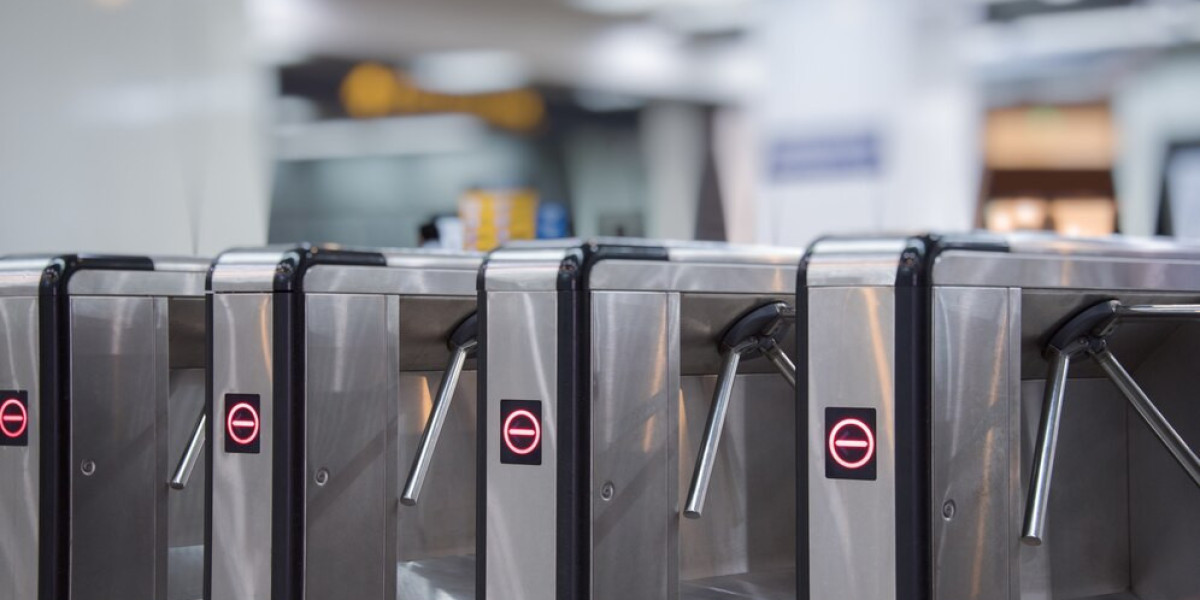The Automated Border Control (ABC) market has emerged as a pivotal component in the evolution of border security and management. As global travel continues to increase, the demand for efficient, secure, and seamless border processes has never been more pressing. In recent years, technological advancements have transformed traditional border control systems into sophisticated, automated solutions that enhance passenger flow while ensuring security compliance.
Current Landscape of the Automated Border Control Market
The ABC market encompasses various technologies and systems designed to streamline the border crossing experience. These include biometric systems, facial recognition technology, e-gates, and automated passport control kiosks. The implementation of such systems is driven by the dual need for enhanced security and improved traveler experience. Countries worldwide, from the United States to Singapore, have adopted ABC technologies, leading to reduced wait times and increased throughput at borders.
According to recent market research, the ABC market is projected to grow significantly in the coming years, fueled by rising international travel and security concerns. The increasing frequency of border crossings whether for tourism, business, or immigration demands more efficient processing solutions. As a result, governments and private entities are investing heavily in the ABC sector, further propelling its evolution.
Technological Innovations Shaping the Future
1. Advanced Biometrics
Biometric technologies are at the forefront of the ABC market, enhancing the accuracy and efficiency of identity verification processes. Innovations in fingerprint recognition, iris scanning, and facial recognition are set to redefine how borders are managed. Future developments may include multi-modal biometric systems that combine various recognition methods for heightened security. This approach not only ensures more accurate identification but also mitigates the risk of identity fraud.
2. Artificial Intelligence and Machine Learning
Artificial intelligence (AI) and machine learning (ML) are increasingly being integrated into border control systems. These technologies can analyze vast amounts of data in real-time, improving decision-making processes. For instance, AI algorithms can detect suspicious behavior patterns or flag individuals based on historical data, allowing border security personnel to focus on high-risk cases. The future will likely see AI systems capable of learning from past interactions to continuously improve the efficiency and accuracy of border checks.
3. Mobile and Cloud Technologies
As travelers increasingly rely on mobile devices, the integration of mobile and cloud technologies into border control processes will become essential. Mobile applications that allow travelers to pre-register their information or upload biometric data can expedite the border crossing experience. Cloud technologies can facilitate data sharing between agencies, enhancing collaboration and improving overall security. As more countries adopt these technologies, the border control landscape will become more interconnected and efficient.
4. Integration of IoT
The Internet of Things (IoT) has the potential to revolutionize border control. IoT devices can gather real-time data from various sources such as weather conditions, traffic patterns, and security alerts allowing for dynamic border management. This technology could enable border authorities to adjust their processes based on real-time information, improving both security and traveler experience.
Potential Challenges Ahead
While the future of the ABC market appears promising, several challenges must be addressed to fully realize its potential.
1. Privacy Concerns
The use of biometric data raises significant privacy concerns. Travelers are increasingly aware of how their personal information is collected, stored, and used. Striking a balance between security and privacy will be crucial for gaining public acceptance of automated systems. Transparent data policies, robust security measures, and clear communication about data usage are essential to building trust among travelers.
2. Cybersecurity Risks
As border control systems become more interconnected and reliant on technology, they become vulnerable to cyberattacks. Ensuring the integrity and security of data will be paramount. Future developments in the ABC market must prioritize cybersecurity measures, including encryption, access controls, and continuous monitoring for potential threats.
3. Regulatory and Compliance Issues
Different countries have varying regulations regarding data privacy, security, and biometric usage. As the ABC market expands globally, navigating these regulatory landscapes will be a challenge. International cooperation and standardization of practices will be necessary to facilitate seamless border crossings and ensure compliance with diverse legal frameworks.








